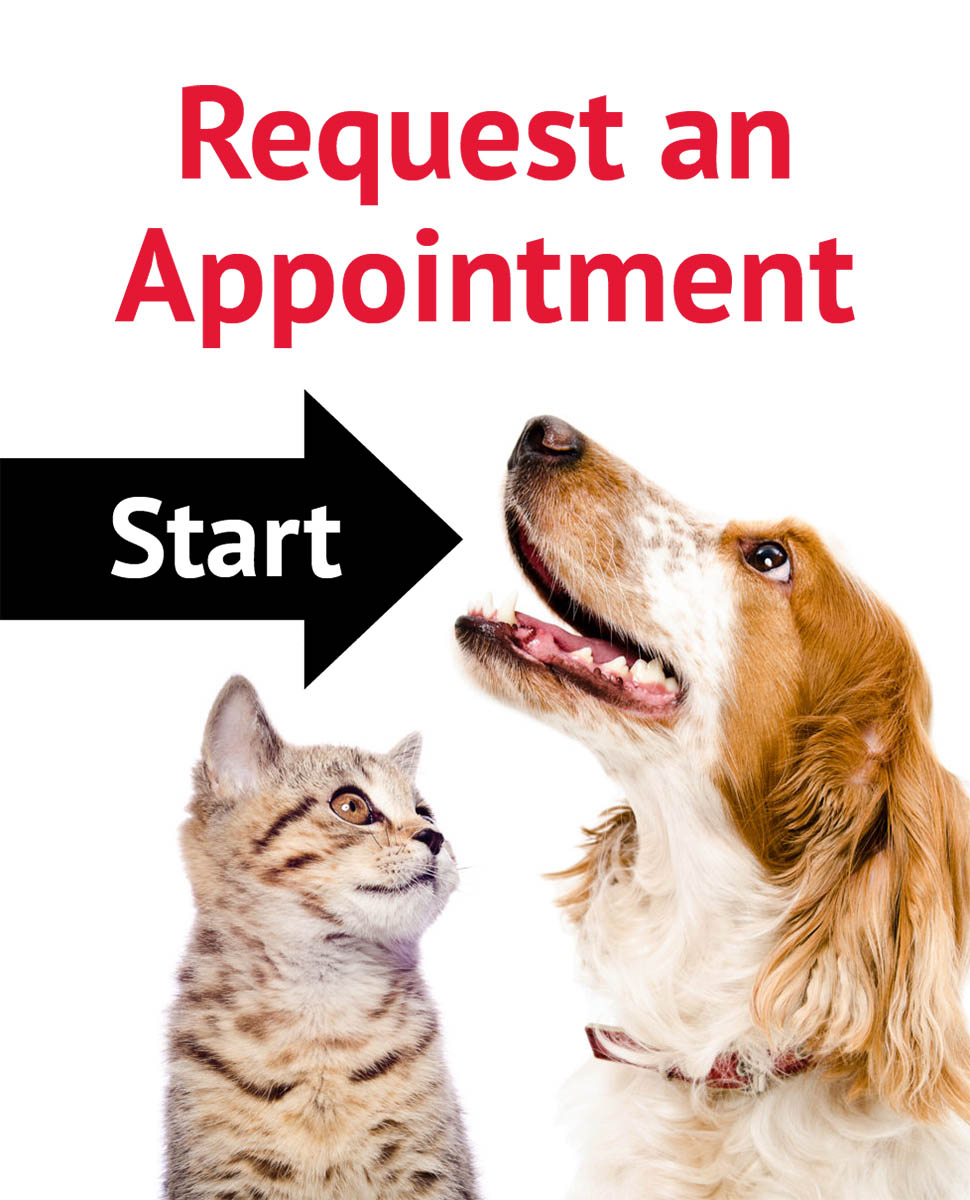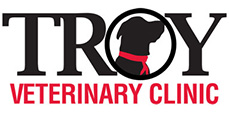
Dental
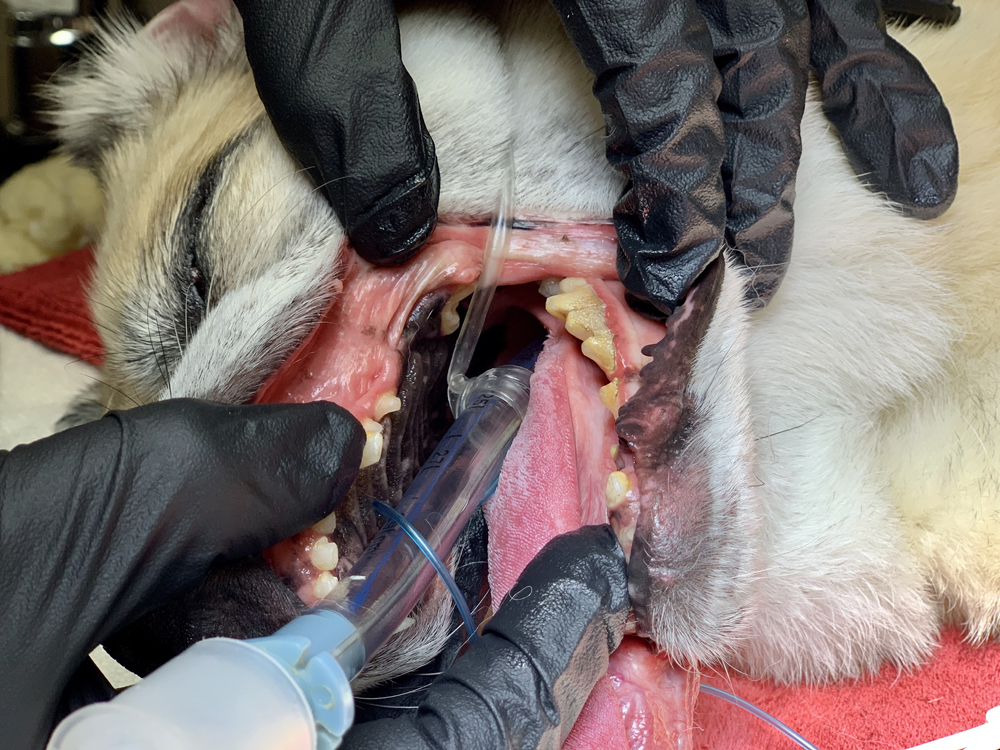
Our veterinarians use an ultrasonic scaler to scale our patient's teeth during dental cleanings. This removes plaque and tartar using vibration to ensure the ultimate dental cleaning.
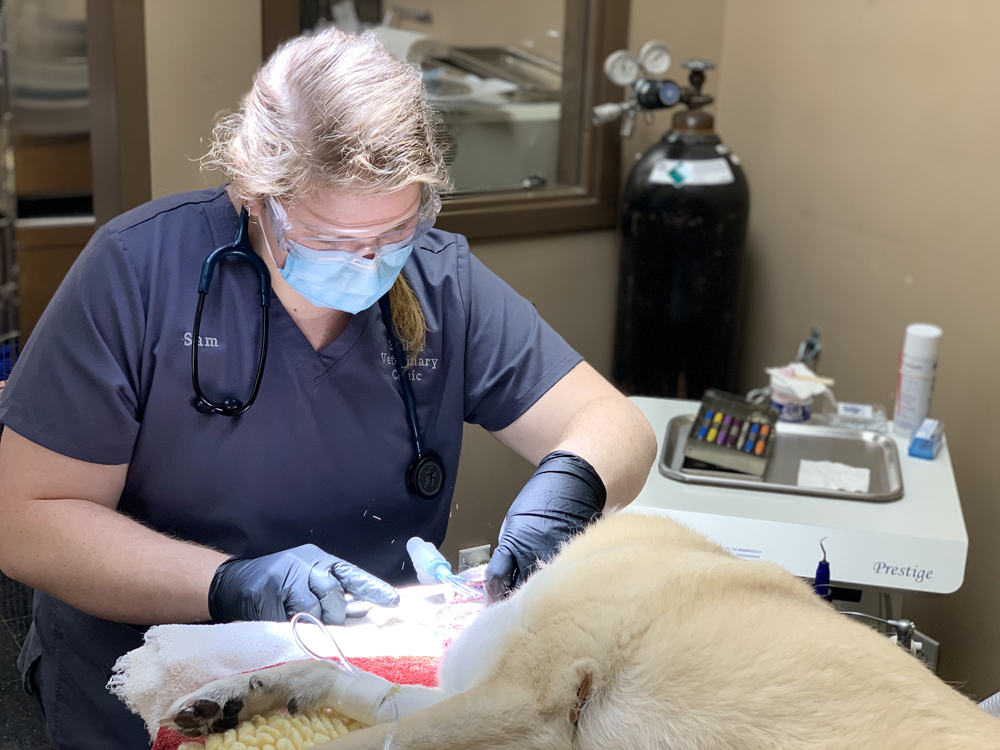
Dental extractions require precision and time. Our Veterinarians are skilled in the art of dentistry.
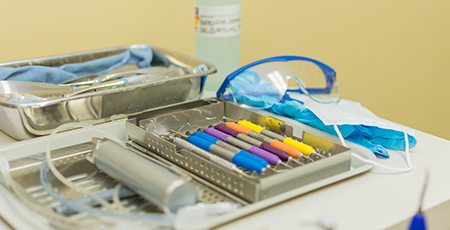
We use instruments very similar to human dental practices to make sure each tooth is properly scaled and cleaned.
Pet Periodontal Disease
View PDF about Pet Peridontal Disease from American Veterinary Dental CollegeOften we forget that animals are susceptible to the same kinds of diseases as humans, and in some cases even more so. This is the case with periodontal disease. In fact, periodontal disease is the most common clinical condition affecting adult pets, despite the fact that it is almost entirely preventable.
What is periodontal disease?
Periodontal disease is no different in pets than in humans. Periodontal disease is the destruction of bone, gum tissue and structures that hold teeth in place. Periodontal disease is caused by bacterial infection that spreads, unseen, beneath the gumline. As the disease progresses, it destroys the bone around the tooth roots leading to mobile, painful teeth. Dogs and cats with advanced periodontal disease often require oral surgery to extract many teeth.
How do I know if my pet has periodontal disease?
The truth is that you don’t. Unfortunately, by the time there are obvious indications of periodontal disease, such as bad breath and loose teeth, there is already significant damage. Periodontal disease begins and exists under the gumline where it is not visible. White teeth do not mean that your pet is free from disease. The only way to prevent or identify periodontal disease early is through regular veterinary dental cleanings under anesthesia, where the pet’s mouth is thoroughly evaluated, cleaned and all the teeth are probed to find periodontal pockets and other disease involving the tooth root and surrounding bone.
Won’t an anesthesia free dental help prevent periodontal disease?
No. An anesthesia free dental cleaning provides no benefit to your pet’s oral health. Scaling (scraping with an instrument) teeth only makes a tooth whiter in appearance. This procedure does nothing to eliminate bacteria beneath the gumline where damage is done and in fact the scaling without proper polishing leaves the tooth surface primed bacterial plaque to attach to the tooth surface. Anesthesia free dental cleanings are most dangerous because they give you a false sense of security that your pet has a clean mouth, leaving periodontal disease undetected and untreated.
How can I prevent periodontal disease?
Fortunately periodontal disease is very preventable. There are two key components to preventing periodontal disease in your pet – home dental care and annual veterinary dental care. Imagine what your own mouth might be like if you never brushed your teeth. Your pet’s mouth is no different. Daily brushing remains the gold standard to prevent plaque and calculus and slow the progression of periodontal disease. In addition, there are diets, treats, chews and water additives that have the Veterinary Oral Health Council seal of acceptance that can be used to assist you with your pet’s preventive oral healthcare program.
An annual visit for a veterinary dental cleaning is an important part of your pet’s oral health care program. Annual dental procedures under general anesthesia allow your veterinarian to visually examine each tooth and use a dental probe around each tooth. When you do this regularly, your pet’s mouth is evaluated, thoroughly cleaned and any bacteria or beginnings of periodontal disease can be addressed immediately before it causes extensive and expensive damage. As is the case for any surgical procedure, preliminary blood work is done to allow us to determine if there are any underlying issues that may interfere with anesthesia, followed by the administration of an individualized anesthetic protocol. We are fully equipped to scale, polish, and perform extractions. Your pet's vital signs are monitored throughout any procedure and pain is managed via a pre-surgical sedation followed by post-surgical medication. Your pet will thank you with a clean and healthy mouth!
Online Store
Visit our Online Store to purchase products for your pets. We have everything you need including food, flea and ticket treatment, pain meds, and supplements. You'll find savings on the products you need from the source you trust!
Visit Store
Visit Store
